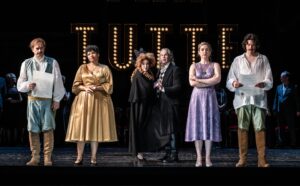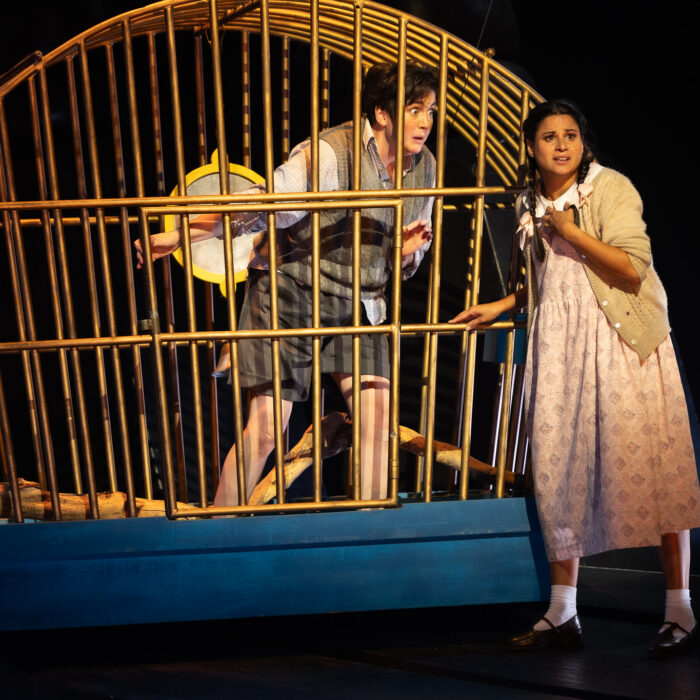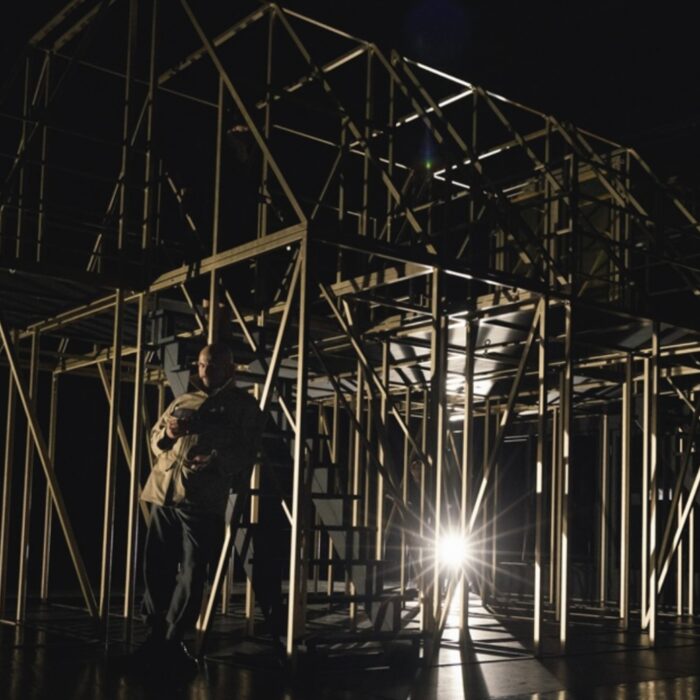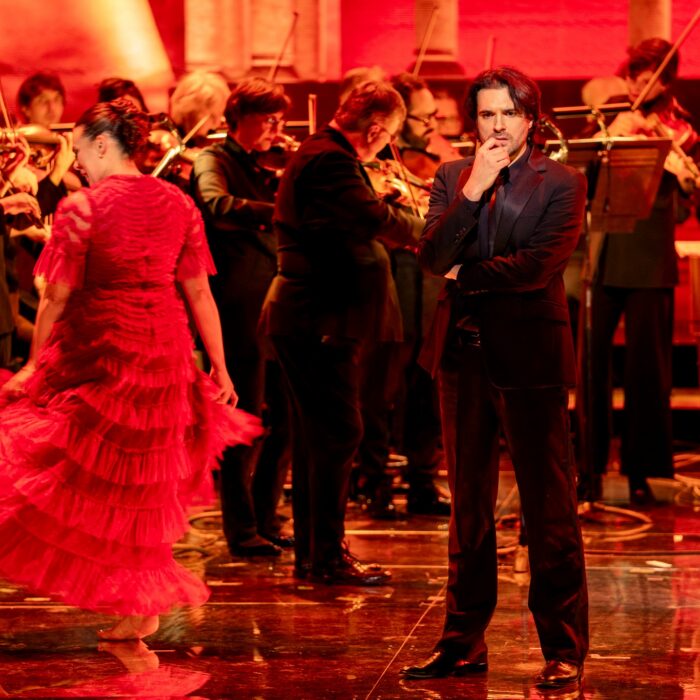
Royal Opera House 2023-24 Review: Così fan tutte
Fine Singing in a Weird & Wonderful Production
By Mahima Macchione(Photo credit: Clive Barda)
It’s curtain down, the opera has just ended and the cast are – dressed in 18th century attire – each taking their turns to bow to the applause, to the sound of “Così’s” ouverture. Confused? Well, that was just the start to an evening that was as whacky as it was amusing, if not also a touch baffling – “thought-provoking” some might say, but it definitely left the audience with more questions than answers. With more than a gesture towards regietheatre, Jan Philipp Gloger added some German flair to Mozart’s classic, to considerable – yet probably controversial – effect.
All the World’s a Stage
Gloger’s take on “Così” was framed from the start by the old Shakespearean idea of a play within a play, or more accurately in this case, an opera within an opera. Daniel Behle and Andrè Schuen as Ferrando and Guglielmo respectively, no longer in period costume but now dressed as contemporary opera-goers, kick-started the action by jumping out from seats in the stalls circle onto the stage. From then on, there were countless scenes with events figuratively taking place on and offstage and behind-the-scenes, where theatre blended with reality in countless ways, with a whirlwind of set changes to match. This included an 18th-century style stage and set – think Drottningholm theatre, an Adam and Eve mini set with a kitschy giant-serpent-and-apple-tree combo, and later we were back to contemporary times, with the view of an opera house from the stage and the Royal Opera Chorus as audience members sitting in the stalls with (actual) Royal Opera House programmes of “Così” to hand, promptly singing their parts. This chronological pastiche, moving between Mozart’s century and now, was at times a touch puzzling and didn’t offer a particularly strong thread, but it somehow worked as a whole – in its own way. The director’s message that “all the world’s a stage” won’t easily be missed.
This revival of the original production which first opened in 2016, has a solid cast of singers which counted three Royal Opera House debuts no less. South African soprano Golda Schultz as Fiordiligi didn’t disappoint, delivering thoughtful singing and flawless execution, not least in the perilous showstopper “Come scoglio.” In an opera full of stand-out arias, it was the rondo “Per pietà, ben mio” that was the real highlight, capturing rapturous applause once a hypnotized house re-awakened – a piece which Schultz sang from atop a metal frame structure, making the whole spectacle even more potent.
Her counterpart, mezzo Samantha Hankey as Dorabella, also in her house debut, graced us with her beautiful tone, sang a commanding “Smanie implacabili” and generally supplied a very polished performance. Italian baritone Andrè Schuen – the third house debut of the evening – was a memorable Guglielmo and brought plenty of character to the role, with a warm, rich tone and fine musicianship.
More Cast Highlights
Daniel Behle as Ferrando, who was in the production’s original cast back in 2016, is well established as a Mozartian tenor. Though it felt like his voice didn’t project quite as much as the rest of the cast, the lyricism in his “Un’aura amorosa” was heartfelt, gorgeous and sensitively delivered.
Also supporting these new arrivals to the Covent Garden stage was an excellent Despina in the form of soprano Jennifer France, no doubt made for the part, with all the panache expected of Da Ponte’s sassy maid. Here, she mixed cocktails and danced on the counter top of a bar packed with men (instead of the usual chocolate drink she prepares for her mistresses) from where she dispatched a compelling “In uomini, in soldati”, one of several numbers she pulled off with energy and assuredness.
Topping it all off was the Canadian bass-baritone Gerald Finley as Don Alfonso, who brought an air of authority to proceedings through his accomplished dramatic skill and the solid stage presence that only experience can bring. “Soave sia il vento” with Schultz and Hankey was certainly a high point, even it at times it felt like his voice was slightly outweighing theirs.
Alexander Soddy was in the pit and his reading of Mozart’s classic work felt just right, especially the pace he brought to the music, the tempo neither too slow or too fast – given tempi in Mozart are nearly a field of study in their own right, this really was something worth noting. It must be said though, that the number of audience members at the Royal Opera rushing for their trains at curtain down without bothering to stay for the applause is now becoming a touch disconcerting – a trend one hopes will not take off. All in all, an unusual evening no doubt, but with great music at its core – one for those who like a bit of madness with their Mozart.


